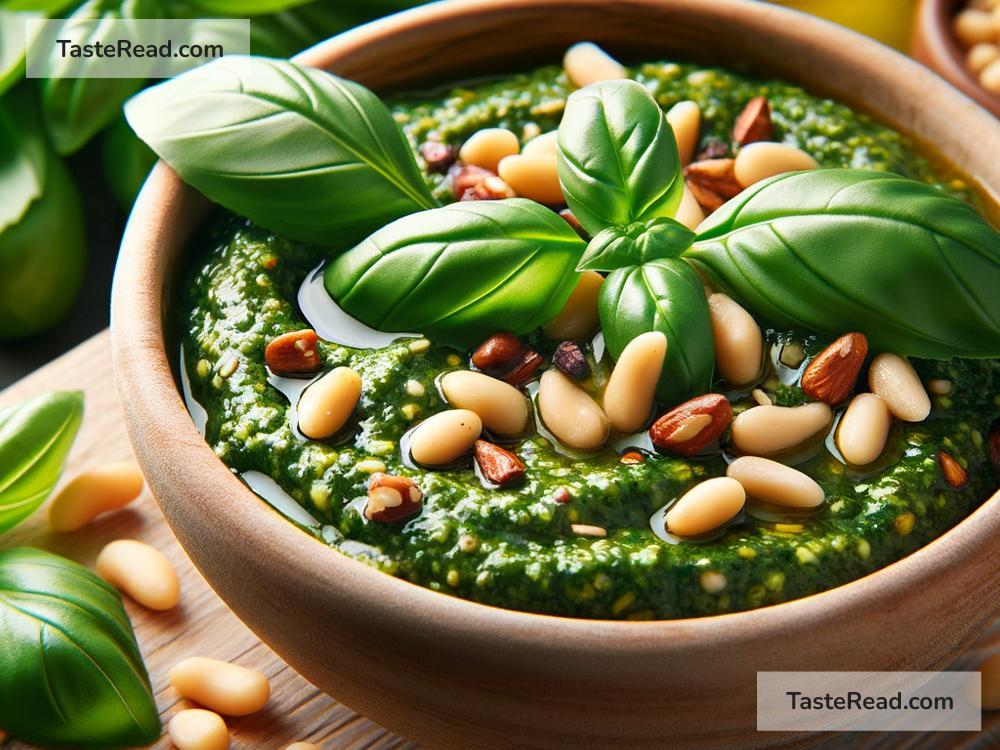Title: The Wonder Nut: How Pine Nuts Elevate Mediterranean Pesto and Salads
In the sun-soaked lands of the Mediterranean, where olive groves meet azure seas, the cuisine is a testament to the region’s bounty. Among the culinary treasures that this area offers, one ingredient stands out for its unique flavor and texture, transforming dishes into gastronomic delights – the pine nut. Particularly in the beloved recipes of pesto and salads, the humble pine nut plays a significant role, making it a cornerstone of Mediterranean cuisine.
The Nut Behind the Flavor
Pine nuts, also known as pignoli, are the edible seeds of pine trees. Harvesting them is a labor of love; it involves removing the seeds from the cones of specific pine tree varieties. This process, coupled with the fact that these trees take years to produce seeds, contributes to the nut’s premium status. But why are these small, teardrop-shaped seeds so cherished in Mediterranean cooking, especially in pesto and salads?
Pine Nuts in Pesto: A Tradition of Taste
Pesto, particularly the classic Genoese version, owes much of its creamy texture and nuanced flavor to pine nuts. This vibrant green sauce, marrying the freshness of basil with the richness of olive oil, Parmesan cheese, garlic, and pine nuts, is a wonder of the culinary world. While each ingredient plays its part, pine nuts are crucial for their ability to emulsify the sauce, lending it a silky smoothness that clings perfectly to pasta or acts as a flavorful spread.
Moreover, the subtly sweet and nutty flavor of pine nuts complements the peppery tones of fresh basil without overwhelming it. This balance is key in achieving the depth of flavor that pesto is renowned for. It’s a testament to the importance of quality ingredients, where the pine nut, small as it may be, plays a starring role.
Elevating Salads to New Heights
Salads in Mediterranean cuisine are a far cry from simple leafy arrangements. They are vibrant, colorful concoctions that blend a variety of textures and flavors, often serving as a meal in themselves. Here too, pine nuts find their place, adding a crunchy texture and a buttery flavor that enhances the salad’s overall character.
Whether it’s sprinkled over a fresh arugula salad with shaved Parmesan, tossed into a tomato and mozzarella Caprese, or mixed into a hearty couscous salad, pine nuts add a level of sophistication. Their rich, nutty flavor pairs exceptionally well with the sharpness of fresh greens and the acidity of dressings, creating a delightful contrast of tastes and textures.
The Health Angle
Beyond their culinary appeal, pine nuts pack a nutritional punch. They’re a source of heart-healthy fats, protein, and fiber, as well as vitamins and minerals such as vitamin E, magnesium, and zinc. Incorporating pine nuts into pesto, salads, and other dishes not only elevates the flavor but also contributes to a balanced diet, embodying the Mediterranean lifestyle that’s celebrated for its health benefits.
Sustainability and Future of Pine Nuts
While pine nuts are integral to Mediterranean cuisine, their future is fraught with challenges, including climate change and overharvesting, leading to price volatility and availability issues. This situation underscores the need for sustainable harvesting practices to ensure that we can continue to enjoy pine nuts without compromising their natural sources.
In the meantime, culinary enthusiasts and chefs alike are exploring innovative ways to incorporate these precious nuts into their dishes, sometimes even venturing beyond traditional recipes to experiment with new culinary landscapes.
Conclusion
The significance of pine nuts in Mediterranean pesto and salads cannot be overstated. They are more than just an ingredient; they are a testament to the region’s rich culinary heritage and its continued innovation. The distinct texture and flavor they bring to dishes, combined with their nutritional benefits, make pine nuts a cherished component of Mediterranean cuisine.
As we savor each spoonful of pesto or each bite of a pine nut-laden salad, let’s appreciate the journey of this small but mighty nut. From the ancient pines of the Mediterranean to our tables, pine nuts continue to be a symbol of culinary excellence and tradition. Long may they reign in the kitchens and hearts of those who treasure the flavors of the Mediterranean.


